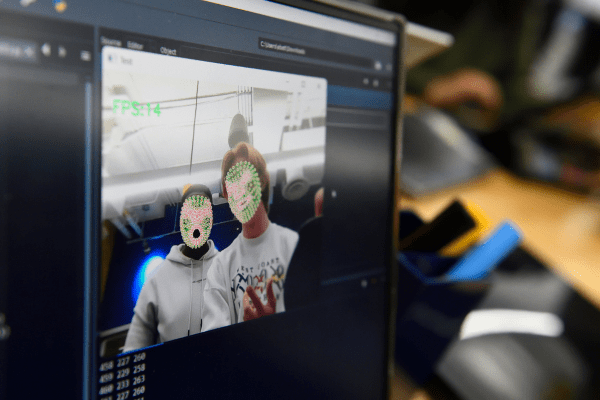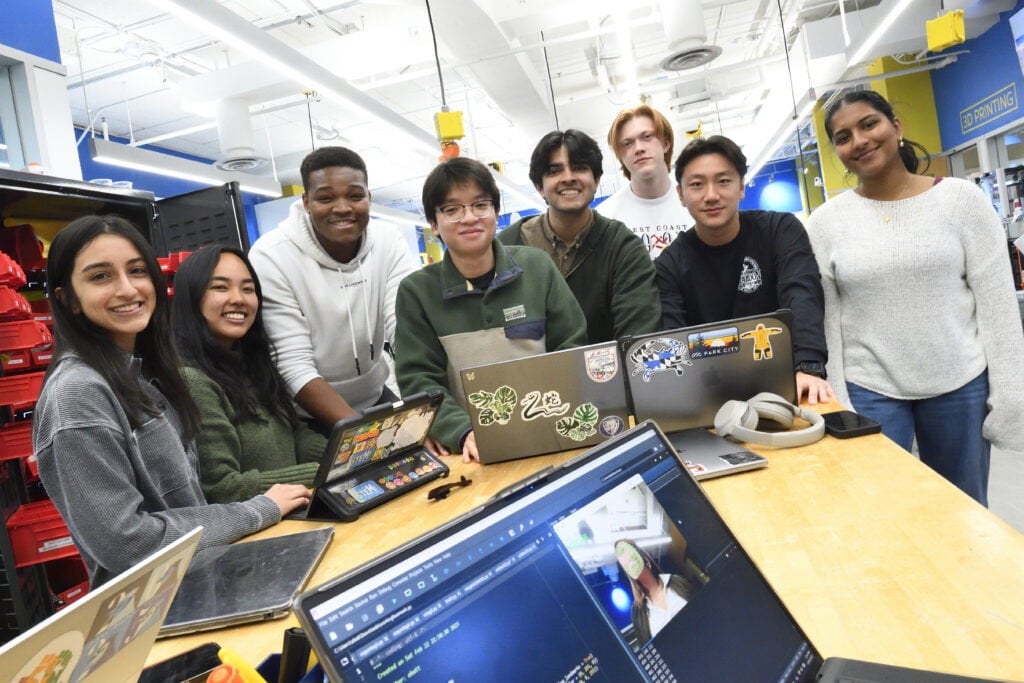A team of undergraduate students in the Department of Biomedical Engineering’s Design Team course has created smart glasses to help patients with nystagmus, a condition causing involuntary, repetitive eye movements.
This condition often results from various neurological conditions including neurodegenerative diseases, stroke, multiple sclerosis, or traumatic brain injuries. Nystagmus makes reading, recognizing faces, and maintaining balance a daily challenge, said Dennis Ngo, a third-year biomedical engineering student, who is co-leading the project team with Archis Shankaran.
“Currently, the only ways to alleviate nystagmus symptoms are medications and surgery. Those medications must be administered around the clock and to toxic levels as the condition worsens, causing severe side effects. Surgery often fails and is not personalized,” said Ngo.
The students will present their project on April 29 at the Whiting School of Engineering’s Design Day—an annual event showcasing students’ innovation and ability to translate theoretical knowledge into real-world solutions.
“iCrutch,” the team’s solution, looks like an ordinary pair of eyeglasses. The key difference is two infrared micro-cameras embedded in the frames that monitor eye motion. The team’s machine learning algorithm identifies abnormal eye movements and delivers a corrective pattern via Bluetooth to electrodes surgically implanted in the wearer’s eye muscles.
Patients must wear these special glasses full-time to monitor their condition and stabilize their vision.


